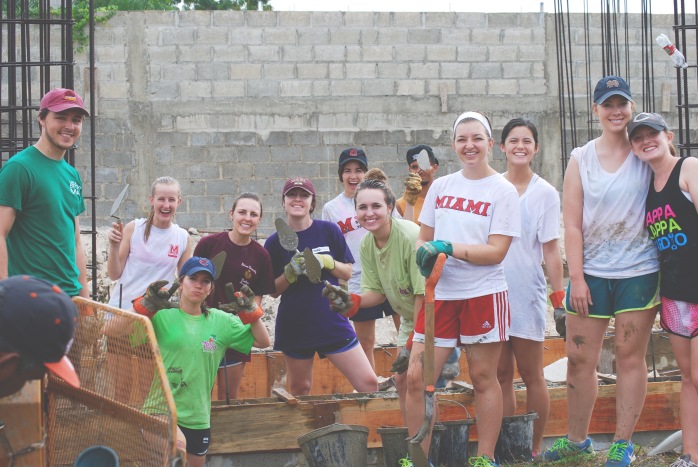During their time in the Dominican Republic, students critically examined three concepts central to community-based leadership: democracy, civic engagement and leadership. Their days were packed with service-learning in elementary school classrooms, testimonials from orphanage residents and volunteering within the community. “The students got to see the importance of leadership within a community,” commented Dr. Saultz.
“This was a unique experience,” he went on, “We spent time in the community to see what made it work so well. It was an experiential application of knowledge.”
Volunteer opportunities offered college students valuable experiences in the importance of being a leader, even though it was different than the traditional definition. One activity, assisting in the delousing process, helped students see that a labor of love could become the foundation for bottom up influence. “It was less glorious leadership,” Dr. Saultz said, “But it was still really important.” By living and participating in the community, study abroad participants explored what it meant to work in public life and engage in leadership for the public good in local, national and international contexts.
“I saw our students struggle to see poverty in a developing country and really learn about what can happen when people are uncomfortable–that’s what helped our students grow,” commented Dr. Saultz after the trip.
Through readings, class discussions, analytical and reflective writing and reflection on their own community-based learning experiences, Miami students were able to connect theory with practice while they lived in the Dominican Republic. They learned first hand what Martin Luther King taught them: “He who is greatest among you shall be your servant…by giving that definition of greatness, it means that everybody can be great. Because everybody can serve.”



 What do Martin Luther King Jr., Maya Angelou, Ralph Waldo Emerson, William Carlos Williams, and Nathaniel Hawthorne all have in common? They were all readings that formed the basis for
What do Martin Luther King Jr., Maya Angelou, Ralph Waldo Emerson, William Carlos Williams, and Nathaniel Hawthorne all have in common? They were all readings that formed the basis for